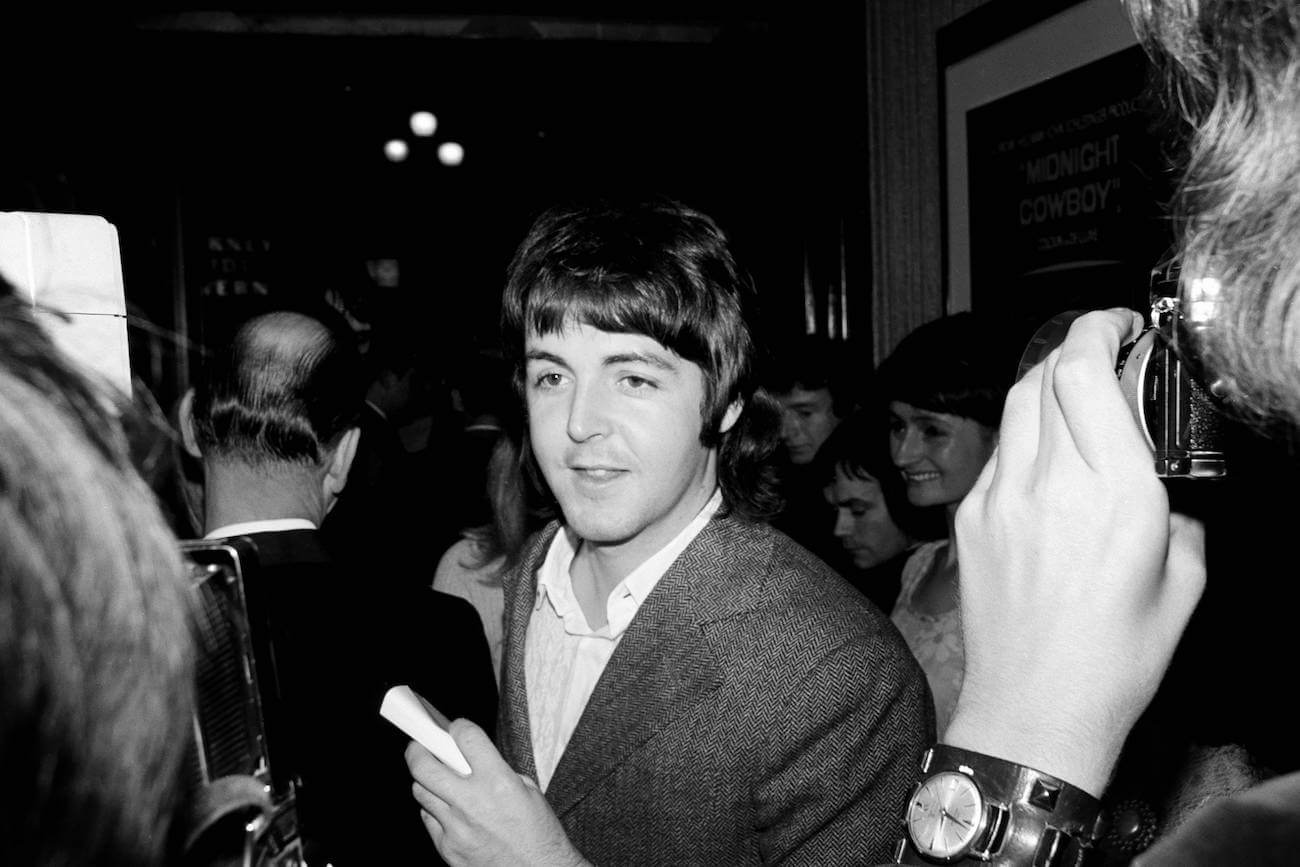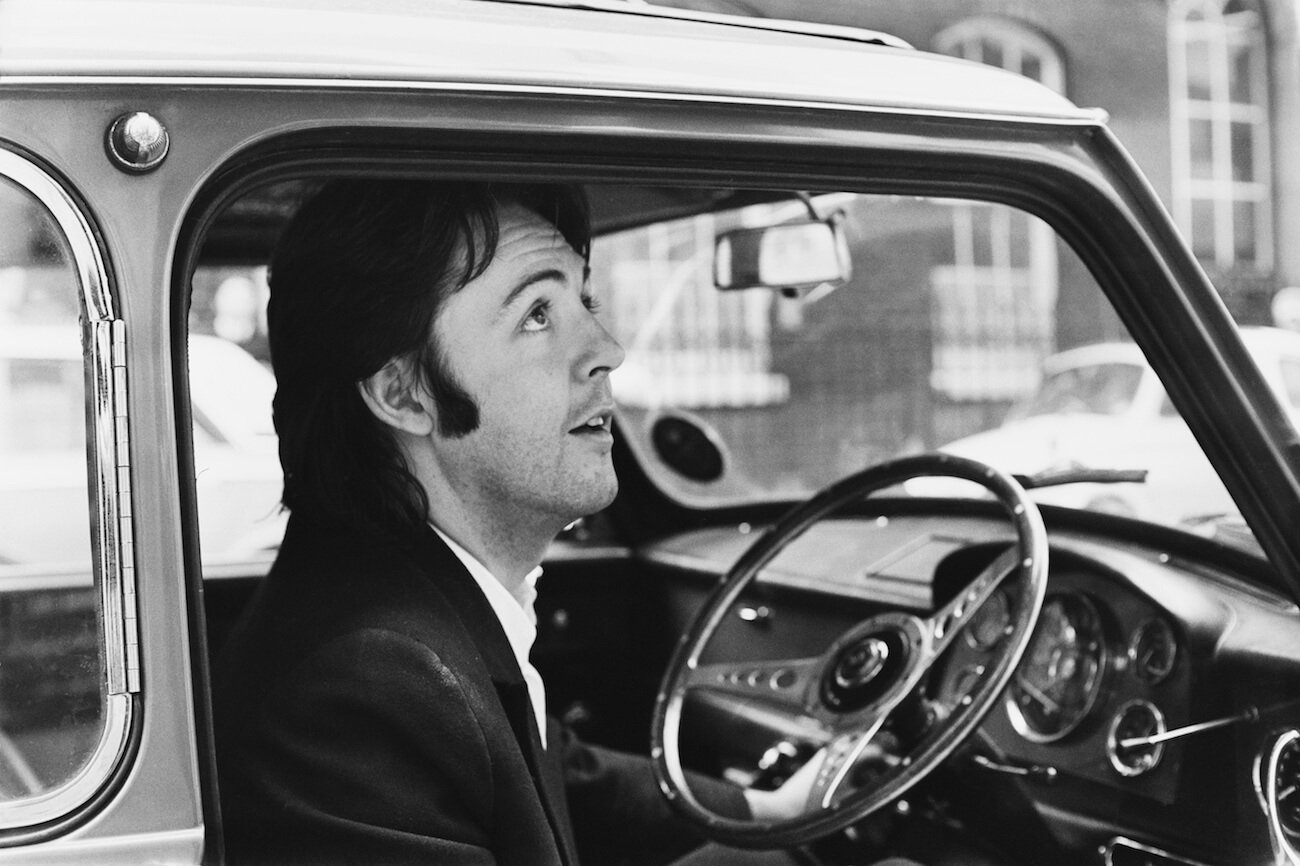
Paul McCartney Said He Was Trying to Be Obscure With 1 Lyric in ‘Maxwell’s Silver Hammer’
Paul McCartney said he was trying to be obscure with one lyric in The Beatles‘ “Maxwell’s Silver Hammer.” The rest of the band didn’t like the song, but Paul was proud of it.

A French dramatist inspired Paul McCartney to write an obscure lyric in ‘Maxwell’s Silver Hammer’
In his book The Lyrics: 1956 to the Present, Paul explained that he tried to be obscure with one lyric in The Beatles’ “Maxwell’s Silver Hammer.”
He was zooming up the highway, traveling from London to Liverpool, in his Aston Martin one day when he heard something on BBC Radio 3. It was a production of Ubu Cocu, which was first broadcast in December 1965 and repeated in January 1966.
Ubu Cocu is one of three plays, including the better-known Ubu Roi, by the French dramatist Alfred Jarry. It’s subtitled “a pataphysical extravaganza.” Paul said “pataphysical” is a word Harry made up to “poke fun at toffee-nosed academics.”
Paul liked the word and decided to add it to “Maxwell’s Silver Hammer.” He was thrilled when he could rhyme “quizzical” with “pataphysical.” Paul said, “I was being a little bit obscure on purpose.”
Paul McCartney also had fun rhyming other words in ‘Maxwell’s Silver Hammer’
In The Lyrics, Paul wrote that Maxwell, the character in the song, is possibly a descendant of James Clerk Maxwell, a pioneer of electromagnetism. Edison is obviously Thomas Edison. “They’re two inventor types,” Paul wrote.
The “Yesterday” singer said part of the fun here is that Edison is connected to the lightbulb and the phonograph, and Paul and The Beatles were making a gramophone record. Paul also had fun rhyming other words in the song.
He explained, “Speaking of lightbulbs, they’re going off all the time, particularly when those little chimes happen. ‘Edison’ and ‘medicine.’ ‘Valerie and ‘gallery.'”
The rest of The Beatles hated recording the song
Paul had many other influences on “Maxwell’s Silver Hammer,” and he was “very keen” on the song. However, his bandmates weren’t pleased recording it.
Paul explained that recording the tune took a bit longer, and the rest of The Beatles got angry with him for it. While they were making Abbey Road, Robert Moog, the inventor of the Moog synthesizer, visited the band in the recording studio.
Paul was fascinated with what could be done with the new sounds from the instrument. That’s one reason “Maxwel’s Silver Hammer” took longer to record than The Beatles’ other songs. However, in hindsight, it didn’t take long compared to today’s standards. It took about three days, but that was long in the 1960s.
Paul said recording “Maxwell’s Silver Hammer” was painful because he and the group knew they’d never perform it. “That possibility was over. It had been knocked on the head like one of Maxwell’s victims. Bang bang,” Paul wrote.
The Beatles might not have liked the tune, but Paul was proud of it. He was happy that he could be obscure on one lyric. Sometimes getting a chance to rhyme well is all a songwriter needs to make a song.


